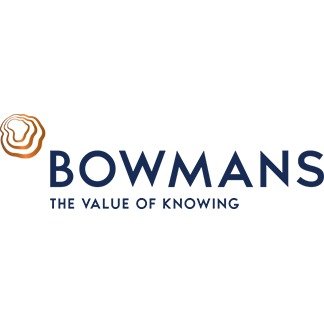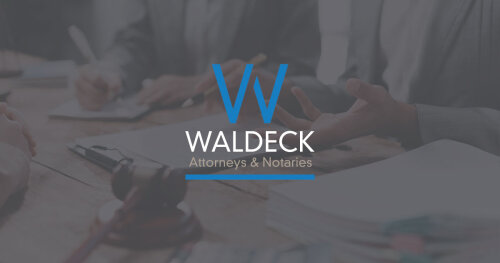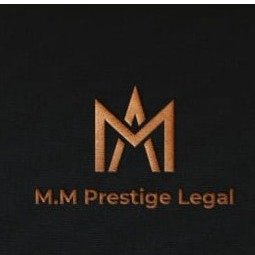Best Intellectual Property Lawyers in South Africa
Share your needs with us, get contacted by law firms.
Free. Takes 2 min.
Or refine your search by selecting a city:
List of the best lawyers in South Africa
About Intellectual Property Law in South Africa
Intellectual Property (IP) law in South Africa is designed to protect the rights of creators and inventors by granting them exclusive use of their creations and inventions. The framework encompasses patents, trademarks, designs, and copyright, among other types of intellectual property. South Africa adheres to both domestic laws and international conventions, such as the Berne Convention and the Agreement on Trade-Related Aspects of Intellectual Property Rights (TRIPS), ensuring a robust system of protection for local and international IP rights holders.
Why You May Need a Lawyer
There are several situations where legal expertise in Intellectual Property is beneficial or necessary:
1. **Protecting Your Creation:** If you have an invention, a brand, or any creative work that you wish to protect legally, an IP lawyer can guide you through the process of securing rights through patents, trademarks, or copyrights.
2. **Enforcement:** In cases where you suspect infringement of your IP rights, legal advice is crucial to take appropriate enforcement actions, such as issuing cease and desist letters or pursuing litigation.
3. **Licensing and Commercial Agreements:** Whether granting or receiving permission to use IP, an attorney can help draft and negotiate licensing agreements to ensure that your rights are protected and obligations are clear.
4. **Litigation and Disputes:** If you are involved in an IP dispute or litigation, expert legal representation can significantly influence the outcome in your favor.
Local Laws Overview
South Africa has a comprehensive legal framework governing Intellectual Property, including:
Patents Act, 1978: Governs the registration and enforcement of patents. A patent gives the inventor exclusive rights to use, make, and sell the invention for a period of 20 years.
Trademarks Act, 1993: Protects brand names, logos, and other identifiers. A registered trademark grants the owner exclusive rights to use the mark in connection with specific goods or services.
Copyright Act, 1978: Automatic protection is provided for original works such as literary, musical, and artistic works. Copyright typically lasts for the life of the author plus 50 years.
Designs Act, 1993: Offers protection for the visual appearance of products, with two categories: aesthetic and functional designs.
These laws are complemented by South Africa's accession to international treaties, aligning the country's IP protection standards with global norms.
Frequently Asked Questions
What is the difference between a patent and a trademark?
A patent is a right granted for an invention, allowing the inventor exclusive rights to use and sell the invention for a certain period. A trademark, on the other hand, protects symbols, names, and slogans used to identify goods or services.
How can I register a trademark in South Africa?
You can register a trademark by filing an application with the Companies and Intellectual Property Commission (CIPC). It's recommended to conduct a thorough search to ensure that your trademark is unique before applying.
How long does patent protection last in South Africa?
In South Africa, patent protection lasts for 20 years from the filing date, subject to the payment of annual renewal fees.
What types of works are protected by copyright?
Copyright protects a wide range of works, including literary, musical, and artistic works, films, sound recordings, broadcasts, and computer programs.
How can I enforce my IP rights in case of infringement?
You can enforce your IP rights through legal actions such as issuing cease and desist letters, pursuing mediation, or proceeding with litigation if necessary.
Can I protect my design internationally?
Yes, you can protect your design internationally through agreements like the Hague System or by filing separate applications in countries where you seek protection.
What is an international patent application and how do I file one?
An international patent application is filed under the Patent Cooperation Treaty (PCT), allowing inventors to seek patent protection in multiple countries simultaneously with one application administered by the World Intellectual Property Organization (WIPO).
Do I need a lawyer to apply for copyright protection?
Copyright protection in South Africa is automatic, meaning you don't need to apply for it. However, having a lawyer can help affirm ownership and deal with enforcement issues.
What are the costs associated with registering IP in South Africa?
The cost depends on the type of IP being registered and typically includes filing fees, legal fees if a lawyer's assistance is sought, and any necessary renewals.
How do I license my IP to others?
Licensing involves granting permission to a third party to use your IP under agreed terms and conditions, usually involving a licensing agreement detailing permissions and payments. Legal advice is often recommended to draft and negotiate these agreements.
Additional Resources
For more information and guidance, consider reaching out to the following resources:
- **Companies and Intellectual Property Commission (CIPC):** The official body for registering patents, trademarks, designs, and copyright in South Africa.
- **South African Institute of Intellectual Property Law (SAIIPL):** Offers resources and support for understanding IP law and rights in South Africa.
- **World Intellectual Property Organization (WIPO):** An international organization providing information on IP systems worldwide.
Next Steps
If you need legal assistance in Intellectual Property, consider the following steps:
1. **Identify Your Needs:** Clarify whether you need help with registration, enforcement, licensing, or dispute resolution.
2. **Consult a Professional:** Engage with a qualified IP lawyer who has experience in handling cases similar to yours.
3. **Prepare Documentation:** Ensure you have all necessary documents and evidence related to your IP to support your case.
4. **Implement Advice:** Follow the legal advice given and take necessary actions such as filing applications, issuing notices, or proceeding with legal actions.
Taking these steps can help ensure that your rights are adequately protected and any issues are effectively addressed.
Lawzana helps you find the best lawyers and law firms in South Africa through a curated and pre-screened list of qualified legal professionals. Our platform offers rankings and detailed profiles of attorneys and law firms, allowing you to compare based on practice areas, including Intellectual Property, experience, and client feedback.
Each profile includes a description of the firm's areas of practice, client reviews, team members and partners, year of establishment, spoken languages, office locations, contact information, social media presence, and any published articles or resources. Most firms on our platform speak English and are experienced in both local and international legal matters.
Get a quote from top-rated law firms in South Africa — quickly, securely, and without unnecessary hassle.
Disclaimer:
The information provided on this page is for general informational purposes only and does not constitute legal advice. While we strive to ensure the accuracy and relevance of the content, legal information may change over time, and interpretations of the law can vary. You should always consult with a qualified legal professional for advice specific to your situation.
We disclaim all liability for actions taken or not taken based on the content of this page. If you believe any information is incorrect or outdated, please contact us, and we will review and update it where appropriate.
Browse intellectual property law firms by service in South Africa
South Africa Attorneys in related practice areas.
Browse intellectual property law firms by city in South Africa
Refine your search by selecting a city.















